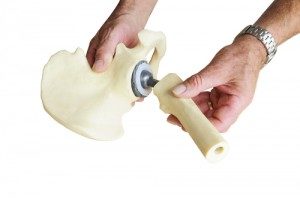According to an article in The New York Times on January 31, 2013, an internal engineering report by Johnson & Johnson found that a popular hip implant risk was assessed inadequately  According to an article in The New York Times on January 31, 2013, an internal engineering report by Johnson & Johnson found that a popular hip implant risk was assessed inadequately. This implant was used in more than 90,000 patients, despite the fact that Johnson & Johnson used incorrect standards to assess risks. Implant Risk was Assessed Inadequately The engineering report was introduced in Los Angeles Superior Court in the first of more than 10,000 lawsuits filed against DePuy Orthopaedics, Inc., a division of Johnson & Johnson. In addition, testimony of Jimmy Smith, a compliance manager with DePuy stated that company officials had not used correct engineering controls when he was asked about the internal report, further confirming that the implant risk was assessed inadequately. Metallic Debris in Patients Surgeons can implant the cup component of the hip implant at a variety of angles based on the patient’s build and the surgical technique. However, DePuy only tested the implant at a normal angle, and research has since shown that any variance from that normal position made it more likely for the joint’s cup and ball to strike each other, releasing metallic debris into patients. Before releasing the product into the market, the implant risk was assessed inadequately, although DePuy subsequently conducted a post-mortem review three months after it was recalled. The company did not release the results of that testing. Failed to Anticipate High Rate of Wear Not only was the implant risk assessed inadequately, but DePuy also failed to anticipate that the implant would have a high rate of wear, even though references exist in the records indicate the product is more likely to have the joint and ball striking each other, and that the incidence is higher than in competitive implants. Because the hip implant risk was assessed inadequately, many patients have suffered after surgeons used the product in their hip replacement surgery. If you or a loved one has suffered as a result of hip implant surgery, contact Frenkel & Frenkel, a Dallas law firm.
According to an article in The New York Times on January 31, 2013, an internal engineering report by Johnson & Johnson found that a popular hip implant risk was assessed inadequately. This implant was used in more than 90,000 patients, despite the fact that Johnson & Johnson used incorrect standards to assess risks. Implant Risk was Assessed Inadequately The engineering report was introduced in Los Angeles Superior Court in the first of more than 10,000 lawsuits filed against DePuy Orthopaedics, Inc., a division of Johnson & Johnson. In addition, testimony of Jimmy Smith, a compliance manager with DePuy stated that company officials had not used correct engineering controls when he was asked about the internal report, further confirming that the implant risk was assessed inadequately. Metallic Debris in Patients Surgeons can implant the cup component of the hip implant at a variety of angles based on the patient’s build and the surgical technique. However, DePuy only tested the implant at a normal angle, and research has since shown that any variance from that normal position made it more likely for the joint’s cup and ball to strike each other, releasing metallic debris into patients. Before releasing the product into the market, the implant risk was assessed inadequately, although DePuy subsequently conducted a post-mortem review three months after it was recalled. The company did not release the results of that testing. Failed to Anticipate High Rate of Wear Not only was the implant risk assessed inadequately, but DePuy also failed to anticipate that the implant would have a high rate of wear, even though references exist in the records indicate the product is more likely to have the joint and ball striking each other, and that the incidence is higher than in competitive implants. Because the hip implant risk was assessed inadequately, many patients have suffered after surgeons used the product in their hip replacement surgery. If you or a loved one has suffered as a result of hip implant surgery, contact Frenkel & Frenkel, a Dallas law firm.
Back to Blog

